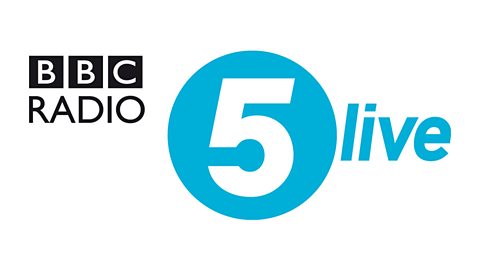Private School vs Grammar School: Understanding the Key Differences
Navigating Your Child’s Educational Path
Choosing the right secondary school for your child is one of the most significant decisions a parent can make. The educational landscape in the UK is diverse, offering various types of schools, each with unique advantages and challenges.
Among these, private schools (also known as independent schools) and grammar schools are two prominent options that often come under consideration for their academic excellence and distinct approaches to education.
Overview of the Educational Landscape
The UK education system is comprised of several types of schools, including state-funded schools, comprehensive schools, academies, free schools, and the more selective private and grammar schools. State schools, funded by the government, provide free education and include comprehensive schools, which cater to all children regardless of academic ability.
In contrast, private schools charge tuition fees and often boast smaller class sizes and extensive extracurricular programmes. Grammar schools, which are state-funded but selective, admit students based on academic ability, typically determined through the 11+ examination.
Brief Introduction to Private Schools and Grammar Schools
Private Schools:
Also referred to as independent schools, private schools are not government funded. They charge tuition fees and often provide many facilities and extracurricular activities. These schools are known for their high academic standards, personalised attention, and emphasis on holistic education.
Private schools come in various forms, including day schools, boarding schools, and preparatory schools, catering to different age groups and educational needs.
Grammar Schools:
Grammar schools are state-funded secondary schools that select their students based on academic performance, usually determined by the 11+ examination. These schools have a long history in the UK and are renowned for their rigorous academic curriculum and strong emphasis on traditional subjects such as mathematics, sciences, and languages.
Unlike comprehensive schools, grammar schools maintain a selective admissions process, which is intended to cater to students with higher academic abilities.
Definitions and Basic Concepts

Private Schools (Independent Schools)
Definition and Types
Private schools, also known as independent schools, are educational institutions that operate independently of government funding and control. These schools charge tuition fees, which cover the cost of education and various extracurricular activities.
Private schools come in several forms, including day schools, where students attend during the day and return home in the evening, and boarding schools, where students live on campus during term time. Preparatory schools, a subset of private schools, cater to younger children and prepare them for entrance into secondary schools.
Grammar Schools
Definition and Historical Background
Grammar schools are state-funded secondary schools that select their students based on academic ability, typically determined through the 11+ examination. These schools have a long and storied history in the UK, originating in the Middle Ages.
Role within the State School System
Grammar schools play a unique role within the state school system. Unlike comprehensive schools, which admit students of all abilities, grammar schools select students based on academic performance. This selective process creates an environment where academically gifted students can thrive and be challenged.
Grammar and independent schools both emphasise high academic standards, but grammar schools offer this within the framework of state-funded education, making them accessible without the tuition fees associated with private schools.
In the ongoing debate of private school vs grammar school, parents often weigh the benefits of a fee-paying, resource-rich independent school against the academically selective, state-funded grammar school.
Admissions Process

Private Schools
Entrance Exams and Interviews
Private schools, also known as independent schools, have a selective admissions process that typically involves entrance exams and interviews. These exams may include tests in mathematics, English, and verbal reasoning. Some schools use the Common Entrance Exam, especially for entry into secondary education, which is often taken at the end of primary school.
In addition to entrance exams, interviews play a significant role in the admissions process, assessing a child’s personality, interests, and overall fit with the school’s ethos.
Selection Criteria
The selection criteria for private schools are multifaceted, considering academic achievement, personal qualities, and sometimes family background. Schools tend to look for students who demonstrate academic excellence and potential, as well as those who will contribute to the school community through extracurricular activities.
Boarding schools may also consider a child’s readiness for the boarding environment.
Tuition Fees and Scholarships
One of the key differences between private schools and state and grammar schools is the tuition fees. Private schools charge fees that can be substantial, covering the cost of education, facilities, and extracurricular opportunities.
However, many private schools offer academic scholarships and bursaries to help offset these costs for students who demonstrate exceptional ability or come from less wealthy families. These scholarships are often awarded based on academic performance in entrance exams and other criteria.
Grammar Schools
11+ Exam and Selection Process
Grammar schools are academically selective and require students to pass the 11+ exam for entry. This entrance examination typically includes sections on mathematics, English, verbal reasoning, and sometimes non-verbal reasoning. The exam is designed to identify students with high academic ability who are likely to benefit from a more rigorous academic curriculum.
Regional Variations in Admission Policies
The admission criteria for grammar schools can vary significantly by region. While the 11+ exam is a common requirement, some areas may have additional criteria or slightly different testing formats. For instance, some grammar schools may place significant weight on the results of specific sections of the exam or consider the overall academic achievement of the child in primary school.
Free Education and Catchment Areas
Grammar schools, being part of the state-funded education system, do not charge tuition fees, making them accessible to students from a wide range of socioeconomic backgrounds. However, the selective nature of these schools means that places are competitive, and achieving the necessary scores on the entrance exam is crucial.
Many grammar schools also have defined catchment areas, prioritising students who live within a certain distance of the school.
Tuition Fees and Financial Considerations

Private Schools
Cost Structure and What Fees Cover
Private schools, being privately funded, charge tuition fees that can vary significantly depending on the institution and the level of education provided. These fees typically cover the cost of academic instruction, access to specialised facilities, extracurricular activities, and pastoral care.
For a boarding school, additional fees are required to cover accommodation and meals. The cost structure often includes other expenses such as uniforms, textbooks, exam fees, and field trips.
Private schools typically offer smaller class sizes, which allows for more personalised attention and tailored instruction. This can be particularly beneficial for students requiring additional support or those excelling in specific areas.
The investment in high-quality facilities and resources, including science labs, art studios, sports complexes, and music rooms, ensures that current students have access to a wide range of educational opportunities and extracurricular activities.
Availability of Financial Aid and Scholarships
Recognising that tuition fees can be a barrier for some families, many private schools provide financial aid in the form of scholarships and bursaries. Academic scholarships are awarded to students who demonstrate exceptional ability, typically based on entrance exam results and other criteria.
These scholarships can significantly reduce the cost of tuition for families. Additionally, bursaries are available for students from lower-income families, ensuring that a quality education is accessible to a broader range of students.
Grammar Schools
Free Education Under State Funding
Grammar schools, as state schools are funded by the government, meaning that they do not charge tuition fees. This makes them an attractive option for parents seeking high-quality education without the financial burden associated with private schools.
Costs for Additional Activities and Resources
While education at grammar schools is free, there may be additional costs associated with extracurricular activities and specialised resources. For example, parents may need to pay for school trips, sports activities, musical instrument lessons, and other enrichment programmes. Additionally, some grammar schools may require contributions for school uniforms, textbooks, and materials for specific courses or projects.
Academic Curriculum and Standards

Private Schools
Curriculum Flexibility and Specialisation
Private schools are renowned for their curriculum flexibility, allowing them to offer a more specialised and tailored educational experience. Unlike state schools, private schools are not bound strictly to the National Curriculum, giving them the freedom to develop unique programmes that cater to the interests and strengths of their students.
This flexibility often includes a wider range of subjects, advanced placement courses, and the integration of modern educational practices and technologies.
Focus on a Broad, Holistic Education
Private schools tend to emphasise a broad, holistic education, aiming to develop well-rounded individuals. This approach includes not only academic subjects but also extensive extracurricular activities such as sports, music, drama, and community service. Private school pupils are encouraged to explore their interests and talents, contributing to their overall personal development.
Boarding schools, in particular, provide a 24/7 educational environment where students can immerse themselves in a variety of activities that promote both intellectual and social growth.
Grammar Schools
National Curriculum Adherence
Grammar schools adhere closely to the National Curriculum, ensuring their students receive a standardised and comprehensive education. This adherence is part of their commitment to maintaining high academic standards and preparing students for GCSE exams.
Grammar schools focus on delivering a rigorous academic programme that emphasises traditional subjects such as mathematics, sciences, languages, and humanities. This structured approach ensures students achieve strong results in nationally recognised qualifications, providing a solid foundation for further education.
Emphasis on Academic Rigour and Traditional Subjects
Grammar schools are known for their academic rigour and strong emphasis on traditional subjects. The selective nature of these schools means that they cater to students with high academic ability, challenging them with a demanding curriculum.
The focus on core subjects ensures that students develop a deep understanding and proficiency in areas crucial for academic success. This rigorous approach prepares students for national exams and instils a strong work ethic and a passion for learning.
Class Sizes and Individual Attention
Comparison of Class Sizes in Private and Grammar Schools
One of the significant differences between private school and grammar school education is class size. Private schools typically offer smaller class sizes compared to state and grammar schools. This reduced student-to-teacher ratio allows for more personalised attention and tailored instruction, catering to the individual needs of private school students.
Grammar schools, while maintaining higher academic standards, often have larger class sizes similar to those found in comprehensive schools. Although grammar schools strive to provide individual attention, the higher student numbers can sometimes limit the level of personalisation compared to private schools.
Academic Outcomes and University Placement

Private School Students
University Admission Rates and Destinations
Private school students often achieve high university admission rates, with many gaining places at prestigious institutions both in the UK and abroad. The strong emphasis on academic excellence and personalised support helps students attain the slightly higher grades required for top universities.
Private schools tend to have dedicated staff and resources to assist with higher education applications, guiding everything from personal statements to interview preparation.
Support Systems for Higher Education Applications
The support systems in private schools for university applications are robust, often including private tuition for specific entrance exams and tailored advice on course selection. This comprehensive support aims to maximise each student’s potential and align their academic achievements with their future aspirations.
As a result, private school students are well-prepared for the competitive university admissions process.
Grammar School Students
Academic Performance and University Admissions
Grammar school students also perform exceptionally well academically, often achieving high grades in GCSE and A-level exams. The academic rigour inherent in such state schools equips students with the skills and knowledge needed to excel in higher education.
Many grammar schools have a strong track record of sending students to top universities, demonstrating their commitment to academic excellence.
Comparison with Comprehensive Schools
When compared to comprehensive schools, grammar school students typically achieve higher academic outcomes, reflecting the selective nature and focus on academic performance in grammar schools. However, it is important to note that comprehensive schools also produce successful university applicants, especially when they offer specialised programmes and strong support systems.
Pros and Cons of Each School Type
Private Schools
Advantages and Potential Drawbacks
Private schools offer several advantages making them an appealing choice for many parents.
- Advantages:
- Smaller Class Sizes: Private schools tend to have smaller class sizes, allowing for more personalised attention and support for each student. This environment fosters better teacher-student interaction and can enhance learning outcomes.
- Range of Extracurricular Activities: Many private schools provide a broad array of extracurricular activities, from sports and arts to debate and community service, ensuring a well-rounded education.
- High-Quality Facilities: Private schools often invest heavily in state-of-the-art facilities, including science labs, sports complexes, and art studios, enhancing both academic and extracurricular experiences.
- Specialised Curriculum: Many private schools offer a flexible curriculum with opportunities for specialisation in areas such as STEM, arts, or languages, often beyond what is available in local state schools.
- Potential Drawbacks:
- Tuition Fees: The primary drawback is the cost. Tuition fees can be substantial, making it a significant financial commitment for many families.
- Pressure to Perform: The competitive environment and high expectations can sometimes create pressure on students, which may affect their mental health and well-being.
- Variable Quality: Not all private schools are the same; the quality of education and facilities can vary widely. Parents need to research and visit schools to find the right fit.
Grammar Schools
Benefits and Limitations
Grammar schools also have distinct advantages and some limitations:
- Benefits:
- Academic Rigor: Grammar schools are known for their strong academic focus and high standards, with a curriculum designed to challenge and stretch students.
- Free Education: As state-funded institutions, grammar schools offer free education, making them an accessible option for many families.
- Selective Environment: The selective entry exam ensures that students are motivated and capable, fostering a competitive and academically stimulating environment.
- Strong Track Record: Many grammar schools have a proven track record of high academic achievement and university placement, often outperforming local state schools.
- Limitations:
- Limited Extracurricular Options: While grammar schools offer extracurricular activities, the range and quality may not be as extensive as those in private schools.
- Funding Constraints: Being state-funded, grammar schools may face budget constraints that can affect the quality of facilities and resources compared to private schools.
- Focus on Academic Ability: The selective nature of grammar schools can sometimes overlook other aspects of student development, such as creativity or vocational skills.
Decision-Making Tips for Parents

Choosing the right school for your child is a significant decision that requires careful consideration.
Here are some factors to keep in mind:
Factors to Consider When Choosing a School for Your Child
- Academic Ability: Assess your child’s academic strengths and weaknesses. Consider whether they would thrive in the rigorous environment of a grammar school or benefit from the personalised approach of a private school.
- Interests and Talents: Think about your child’s interests, whether they are academic, artistic, or athletic. Look for a school that offers a range of extracurricular activities that align with their passions.
- Family Values and Priorities: Reflect on your family’s values and priorities, including your views on education, extracurricular activities, and the importance of class sizes and teacher-student ratios.
Questions to Ask and Visits to Make
- Visit Schools: Arrange visits to both grammar and private schools. Observe the classrooms, meet teachers, and speak with current students and parents to get a sense of the school environment.
- Ask About Academic Support: Inquire about the support systems in place for students, including tutoring, college counselling, and extracurricular opportunities.
- Explore Facilities: Look at the facilities and resources available, such as science labs, sports facilities, and art studios. Assess whether they meet your expectations for your child’s education.
Balancing Academic Ability, Interests, and Family Values
- Consider the Entry Exam: For grammar schools, prepare your child for the entry exam, focusing on areas such as verbal reasoning and mathematics. Ensure they are well-prepared but not overwhelmed by the process.
- Evaluate School Offers: Compare what each school offers in terms of academic programmes, extracurricular activities, and support services. Consider whether the school’s ethos and environment are a good match for your child’s personality and needs.
- Look at Local Options: Don’t overlook local state schools or private schools that may offer excellent programmes and facilities. Many local private schools and state schools provide a high standard of education and could be the right school for your child.
Conclusion

Summary of Key Points
Private schools offer numerous advantages, including smaller class sizes, a broad range of extracurricular activities, and high-quality facilities. They provide a flexible and specialised curriculum, often tailored to individual student needs, and invest significantly in both academic and extracurricular resources.
However, the cost of tuition fees can be a substantial financial commitment, and the pressure to perform can sometimes impact student well-being.
Grammar schools, on the other hand, are state-funded and offer a rigorous academic environment free of charge. They are known for their high academic standards and selective admissions process, which fosters a competitive and motivated student body.
However, they may have more limited extracurricular options and face funding constraints that can affect facility quality. Despite these limitations, many grammar schools have an excellent track record of academic achievement and university placement.
Encouragement to Make an Informed, Personalised Decision for the Child’s Best Interest
Ultimately, the right school for your child will depend on their academic abilities, personal interests, and your family’s values. Whether considering a private school with its extensive resources and personalised approach or a grammar school with its rigorous academic focus and state-funded accessibility, it is crucial to assess what environment will best support your child’s growth and success.
Visit many schools, including local state schools and private institutions, to observe their environments, meet the staff, and understand what each school offers. Pay attention to the range of extracurricular activities, the quality of facilities, and the support systems available for students.
By taking these steps, you can ensure that your decision is well-informed and tailored to your child’s specific needs.







